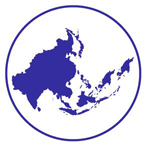Presentation Title
"What is Fiction?" - a Question of Self and Displaced Self
Location
RCC Small Ballroom
Start Date
11-10-2013 1:45 PM
End Date
11-10-2013 3:15 PM
Abstract
“What is fiction?” has been a recurrent question posited by a number of Japanese authors over the past decades. One notable moment in modern Japanese history can be found around 1935 in the works by authors such as Ishikawa Jun, Nakano Shigeharu, Itô Sei, Dazai Osamu, and Nagai Kafû. In postwar Japan, authors like Ôe kenzaburo and Abe Kôbô were also engaged in this question. Not only in their fictions, but in their literary essays, each of them grapples with how to reify a literary reality while facing a changing social reality. Each author’s experience and perception of ordinary life constantly prompt him to rethink such concepts as self and modernity beyond any collective theorization in which he is often immersed through literary theories and/or ideologies from the West. In contemporary Japanese literature, Hosaka Kazushi intensively revisits the question, for which he coins a word “nôsan-sei (能産性) of watashi (私)”—an idea that the first-person narrator is not identical with the author himself, but it is created “through separate images, scenes, events, etc.”
This paper explores the question (“What is fiction?”) as a question of self and displaced self, focusing on Hosaka’s approach to it in comparison with the historical approaches to the question. This should be led to its relevant question, namely fiction as historiography that embraces reality in what is neglected in the existing historical writing about social reality.
"What is Fiction?" - a Question of Self and Displaced Self
RCC Small Ballroom
“What is fiction?” has been a recurrent question posited by a number of Japanese authors over the past decades. One notable moment in modern Japanese history can be found around 1935 in the works by authors such as Ishikawa Jun, Nakano Shigeharu, Itô Sei, Dazai Osamu, and Nagai Kafû. In postwar Japan, authors like Ôe kenzaburo and Abe Kôbô were also engaged in this question. Not only in their fictions, but in their literary essays, each of them grapples with how to reify a literary reality while facing a changing social reality. Each author’s experience and perception of ordinary life constantly prompt him to rethink such concepts as self and modernity beyond any collective theorization in which he is often immersed through literary theories and/or ideologies from the West. In contemporary Japanese literature, Hosaka Kazushi intensively revisits the question, for which he coins a word “nôsan-sei (能産性) of watashi (私)”—an idea that the first-person narrator is not identical with the author himself, but it is created “through separate images, scenes, events, etc.”
This paper explores the question (“What is fiction?”) as a question of self and displaced self, focusing on Hosaka’s approach to it in comparison with the historical approaches to the question. This should be led to its relevant question, namely fiction as historiography that embraces reality in what is neglected in the existing historical writing about social reality.

Comments
Presentation is included in Panel 5: Modernity and the Self: Family Magazines, Fiction, and Western Music in Modern Japan